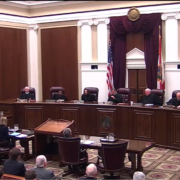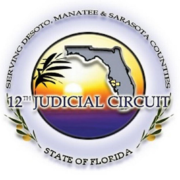Freezing High Conflict Divorce Litigation for the Collaborative Process
I strongly suggest that any person who is in the initial stages of a Florida divorce consider engaging in the collaborative process from the very beginning. This simply means that each spouses hires an attorney solely for the purpose of helping them reach a divorce agreement.
The attorneys are contractually prohibited from wasting time and money on preparing for trial (90% or so of all divorce cases settle, yet millions and millions of dollars are spent each year preparing for a trial that rarely happens). Discussions are held in a private, respectful, and transparent atmosphere, and other professionals are brought in as needed to tend to the parties’ financial and emotional needs.
But some clients are resistant to the collaborative process because of perceived cost issues or they feel they need to have a gunslinger to take out their spouse. And many attorneys will not engage in the collaborative process because litigation work is pretty profitable or they have not invested the time and money in taking an introductory collaborative training.
And so there are plenty of divorce battles going on in the Florida court system. It is not uncommon for those battles to go on for two, three, four, or more years, and for the parties to spend hundreds of thousands of dollars in attorneys’ fees, expert witness fees, deposition fees, document production fees, forensic evaluation fees, court reporter fees, and so on, and feel no closer to a final resolution of their divorce.
But there is something that can be done to change the dynamics.
If you are in a highly contentious divorce court battle, and you are absolutely sick of the way it has been proceeding, but you do not want to lose all of the work that your litigation lawyer has done, consider a litigation freeze.
Litigation Freeze
A litigation freeze is a unique opportunity for otherwise fighting spouses advocated by internationally renowned family law attorney Forrest Mosten.
It can be a temporary, time-limited phase where all litigation stops, and the divorce litigation lawyers go on standby. Both spouses retain collaborative lawyers who specialize in using interest-based negotiations to reach a settlement. All of the collaborative lawyers’ energy and resources will be focused solely on settlement.
A neutral collaborative facilitator is brought in. He or she has a mental health background, keeps communications constructive, and helps untangle the emotional knots that have build up during the litigation.
Further, a neutral financial professional is retained. He or she ensures financial transparency and accountability in the negotiations (think “trust but verify”) and offers innovative and personally-tailored options for equitable distribution, alimony, child support, and other issues.
The use of the collaborative process is likely to help the parties get out of the vicious cycle of hate and revenge that tends to build up during nasty court battles as it takes them out of the adversarial court system. Collaborative lawyers in a case do not view each other as enemies, but rather as teammates gathered to find a solution that is acceptable to both spouses. Collaborative lawyers also encourage their clients to consider not only how the divorce is affecting them, but also how their actions are affecting their children, family, and community at large.
With the collaborative process, you are giving yourself the best chance to end the battles, reach an agreement, save some relationships, and be able to move on with your lives. Almost 90% of all collaborative cases end with a full agreement reached. But, if you are in one of those rare cases where you do not reach an agreement, you can terminate the collaborative process, take your litigator off standby, and return to the court system.
You do not need to be stuck in your divorce battle. You have options. You and your spouse simply need to be willing to disrupt the litigation dynamics and attempt the collaborative process.
If you have questions regarding collaborative divorce in Tampa Bay or the litigation freeze, call Family Diplomacy: A Collaborative Law Firm at (813) 443-0615 or fill out our contact form.
Adam B. Cordover is former president of Next Generation Divorce, Florida’s largest collaborative practice group. Adam is also co-chair of the Research Committee of the Collaborative Family Law Council of Florida and a graduate of the inaugural Leadership Academy of the International Academy of Collaborative Professionals.
Adam now practices exclusively in out-of-court dispute resolution.





Trackbacks & Pingbacks
[…] to lose your current attorney if the collaborative process is unsuccessful, you can chose to have a litigation freeze. This is where your trial attorney goes on standby, and you retain a new collaborative lawyer for […]
Leave a Reply
Want to join the discussion?Feel free to contribute!